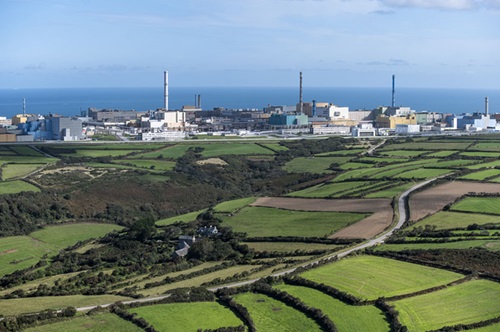
Orano launches Sharing Groups with designers of innovative reactors
The world of nuclear energy is evolving with the emergence of Small Modular Reactors (SMRs) and Advanced Modular Reactors (AMRs). These technologies offer flexible, safe and sustainable solutions to meet the energy needs of tomorrow, complementing more powerful reactors. In this context, Orano has taken the initiative and created two specific “sharing groups*” which bring together the main designers of innovative fast neutron reactors in France. These groups are open to all designers of these types of reactors who wish to join. This shared approach will aid the development of fast neutron reactors by allowing for greater efficiency, as well as optimizing costs and resources for developments associated with this fuel.
*Working groups
SMRs and AMRs: Next-Generation Reactors

SMRs and AMRs represent small-scale nuclear reactors which are more compact and modular, and designed for mass production. Their modular design is aimed at reducing costs and construction times. While SMRs are based on well-established technologies, AMRs feature innovations, such as the optimized use of recycled materials, the production of high temperature heat and the use of new forms of (solid or liquid) fuel.
Some AMRs are notable for their ability to use fuel based on recycled plutonium, such as MOX (Mixed Oxide Fuel) or molten salt fuels. These features make for reactors which are potentially well-suited to long-term, sustainable use of resources and the reduction of nuclear waste. Orano, historically active in the fuel cycle of conventional reactors, is also interested in these advanced reactor designs.
With the creation of two “sharing groups”, Orano is acting as a strategic partner for start-ups working on the development of AMRs
Orano has signed two collaboration charters, thereby setting up two “sharing groups” which will make it possible to pool start-ups’ needs relating to the development of fuels.
The first FNR MOX sharing group brings together Orano, Hexana, newcleo and Otrera. Its aim is to work on the developments necessary for the production of the MOX fuel used in these fast neutron reactors (FNRs) and its future processing
in a facility on Orano’s La Hague site, as well as on the associated logistical solutions.

The second MSR sharing group brings together Orano, Naarea, Stellaria and Thorizon. Its aim is to work on the developments necessary for the production of the liquid fuel used in these fast neutron molten salt reactors (MSRs), as well as on the associated logistical solutions and the prospects of processing these salts on Orano’s La Hague site.
These collaborations follow on from the France 2030 investment plan, which aims to promote the emergence of high-end nuclear technologies and reinforce France’s position as a leader in energy innovation. They will complement existing collaborations with the two start-ups Stellaria and Thorizon, established following the call for projects for phase 1, which ran until June 2023. Based on its 50 years of experience in the nuclear fuel cycle, Orano is recognized as a preferred partner in supporting the emergence of AMR reactors and accelerating their development thanks to these strategic collaborations.

AMRs: new perspectives for low-carbon, sustainable energy
AMRs, which can complement high-power reactors, are intended to offer solutions in the realms of:
- Decarbonization: AMRs could supply heat to industrial sites or urban heating networks, or produce hydrogen without creating any CO2 emissions.
- Recovering resources: fast neutron AMR reactors should allow optimized recycling of used fissile materials, which will reduce the quantity of nuclear waste over the long term.
Orano is interested in the concept of reactors which can run not only on the plutonium from spent fuel from existing reactors but also on minor actinides, which until now have been treated as vitrified waste. By coupling this technology with the recycling
of uranium and plutonium in light water reactors which are already used in several countries, in particular thanks to the processing of used fuel at facilities like Orano’s La Hague site, the Orano group could go even further in terms of the
recovery of nuclear materials and reduction of waste.
Orano, a key actor in the future of nuclear energy
The signature of the two charters for the creation of the sharing groups shows that Orano is committed to playing an active role in the development of the nuclear technologies of tomorrow, contributing its expertise and its vision of a sustainable nuclear fuel cycle.
Orano can draw on a robust culture of innovation to adapt to changes in industry, the climate and energy. Working closely with the developers of fast reactors, it continues to reinvent nuclear energy, in order to produce the low-carbon energy essential
to the energy mix of the future.